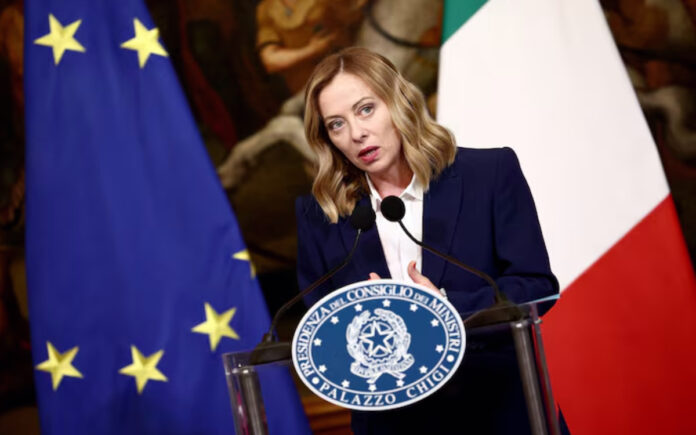Rome: Italian Prime Minister Giorgia Meloni voiced criticism on Wednesday over plans to allocate top positions in EU institutions, arguing they disregard the success of right-wing parties in this month’s European Parliament elections.
Sources revealed on Tuesday that the main centrist European groups, excluding Meloni’s conservatives, had reached an agreement on distributing key posts within the EU. This includes nominating Germany’s Ursula von der Leyen for a second term as head of the European Commission, pending approval at the upcoming summit in Brussels.
Meloni, addressing lawmakers, expressed dissatisfaction with the failure to consider the electoral gains of right-wing and eurosceptic parties. Her party, the right-wing Brothers of Italy within the European Conservatives and Reformists Party (ECR), secured the most votes in Italy, reflecting a broader shift to the right in France and Germany.
“The parties that have gained significant political support in the latest elections must be taken into account in these negotiations,” Meloni asserted, highlighting the ECR’s rising influence in the European Parliament.
She criticized the EU’s decision-making process as dominated by ideological biases, contrasting it with the Union’s founding principle of neutrality towards member states’ political affiliations.
Under the proposed deal, former Portuguese Prime Minister Antonio Costa would lead EU national leaders’ meetings, and Estonian Prime Minister Kaja Kallas would assume the role of EU foreign policy chief.
Also Read | Pakistan Deputy PM Ishaq Dar Urges Diplomatic Normalization with India Amid Economic Struggles
Meloni emphasized that such arrangements contradict the original ethos of the European Union, designed to ensure impartiality across member states despite their political differences.
While the three main factions in the European Parliament possess sufficient votes to secure approval within the European Council, von der Leyen’s confirmation as Commission chief hinges on broader parliamentary support, which she may seek to secure by engaging with Meloni and potentially offering Italy a significant portfolio within the Commission.



